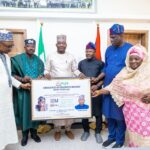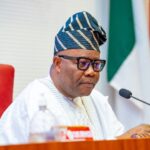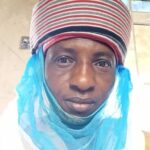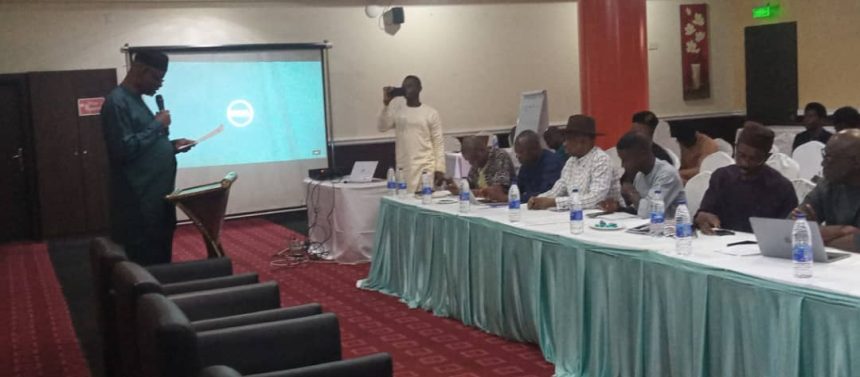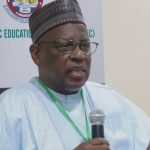By Linus Aleke, Abuja
The Coordinator, Civil Society Leaders Forum, on Social Protection and Sustainable Development, Dr. Otive Igbuzor, has said that despite government effort in scaling up social intervention programmes in the country, Nigeria still has one of the least Social Protection coverage rates in Africa and globally.
He also noted that it has been documented that Nigeria spends less on Social Protection than every other lower-middle income country in the world.
He recalled that as of 2015, Social Protection Programmes of all forms in Nigeria, could only cover less than 5 percent of Nigerians, compared to 48 percent in South Africa, 45.2 percent globally and 17.8 percent in Africa.
Dr. Otive, made this assertion on Tuesday in Abuja, while delivering a keynote address on the crucial topic of social protection in Nigeria.
Dr. Otive, who is also the Founding Executive Director, African Centre for Leadership, Strategy & Development (Centre LSD), said that Nigeria has not fared well regarding the various forms of Social Protection reflected in poor coverage of segments of the population.
For instance, he noted that the coverage of persons with disabilities is 0.1 percent compared with 64.3 percent in South Africa and 27.8 percent globally, while that of retirees, is 7.8 percent compared with 92.6 percent in South Africa and 67.9 percent globally.
He said: “This weak social protection system was evident during the COVID-19 crisis. For instance, between March, 2020 and March 2021, out of 43 million households, only 1.7 million households representing 3.9 percent coverage rate received social safety net support through cash transfers either from federal, state or Local Government. Thirdly, the Social Protection Programme in Nigeria lacks credible data. The National Social Register is enmeshed in credibility dispute. According to the World Bank, there is lack of updated database of beneficiaries as only 18.1 percent of poor and vulnerable Nigerians have a National Identification Number”.
The Coordinator, said that Social Protection is a critical mechanism for reducing poverty and inequality, enhancing human capital and promoting inclusive growth, adding that
Social Protection has evolved in Nigeria.
He observed that the early initiatives were largely adhoc and fragmented, focusing on specific groups such as civil servants or the elderly and sectors such as health and education, stressing that over the years, there is a gradual shift towards a more comprehensive and integrated approach.
He further recalled that as of April, 2023, the Federal Ministry of Finance, Budget and National Planning estimated that the National Social register has about 50 million beneficiaries representing only 38 percent of the 133 million Nigerians that are multi-dimensionally poor as of 2022.
He added that it is well documented that Social Protection in Nigeria suffers from low coverage, weak targeting and fragmentation and are devoid of any linkages to productive opportunities for its large and growing population.
All of these, he said necessitate the need for an inclusive social protection programme for Nigeria.
Noting that Social Protection programmes are necessary in Nigeria because of high levels of poverty, inequality, poor development indices and lack of inclusive growth, Dr. Otive said, the country has not benefitted from its Social Protection Programmes like other countries, despite a draft policy on Social Protection (2021), agency for implementation of Social Protection and some investment in Social Protection Programmes.
In conclusion, he recommended that there is the need for inclusive Social Protection programme with universal coverage, adequate and sustainable financing, comprehensive social safety nets, data driven decision making and effective implementation.
Giving an overview of the Civil Society Leaders Forum, Ms. Faith Nwadishi, the Deputy Coordinator, said that from 2015, Nigeria embarked on an ambitious Social Investment Programme (SIP) implementing the largest Social Investment Programme in Africa.
She however, noted that the programme was marked by misconception, poor implementation, and corruption, stressing that there is the need to revisit the idea of Social Protection; assess the current state of Social Protection Policies and Programmes and map the way forward.
She also enumerated the objectives of the forum on Social Protection to include, to critically assess the effectiveness and impact of existing social protection policies and programs in Nigeria, identify key challenges, gaps, and opportunities in social protection implementation and coverage, foster collaboration and dialogue among stakeholders to develop actionable recommendations for strengthening social protection systems, and promote transparency, accountability, and credibility in the design and implementation of social protection initiatives
In his goodwill message at the occasion, Mr. Usie Charles, Country Director, Plan International Nigeria, said that time has come for the civil society group to talk less and take more action to change the negative socio economic indicators in Nigeria.


